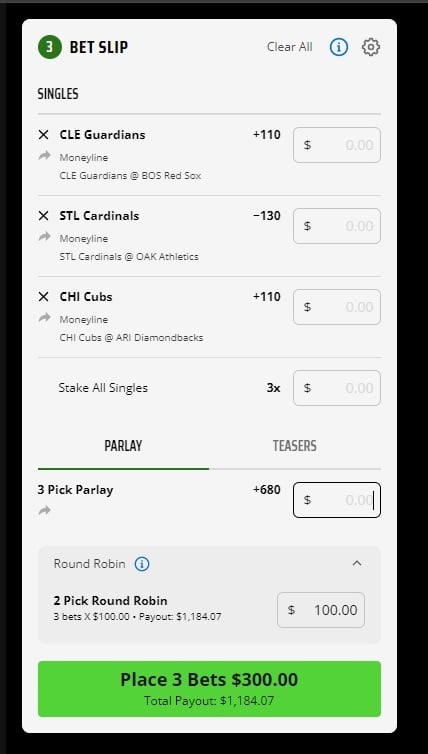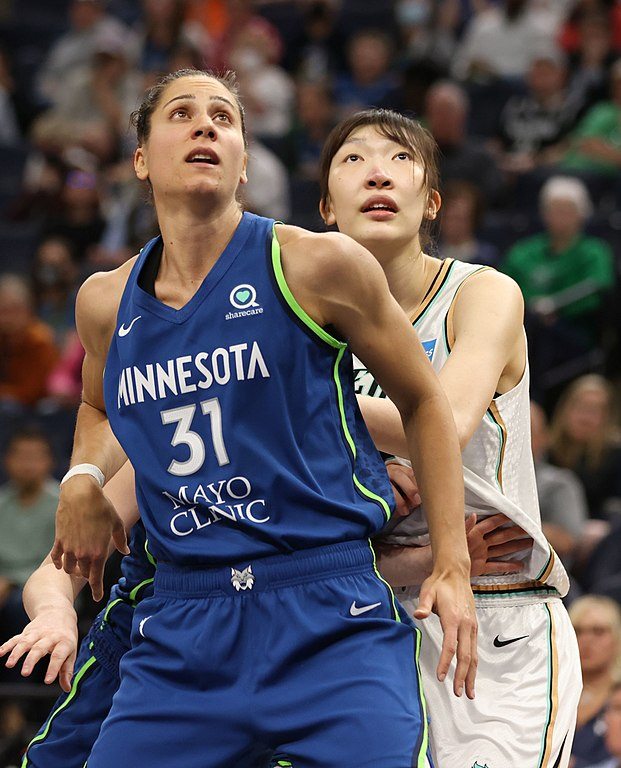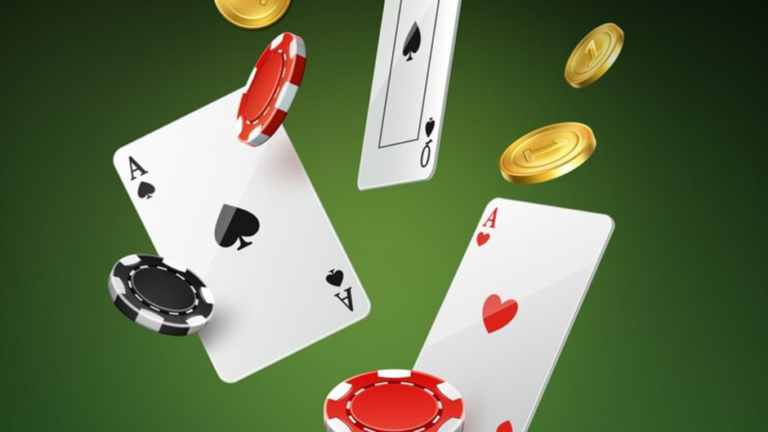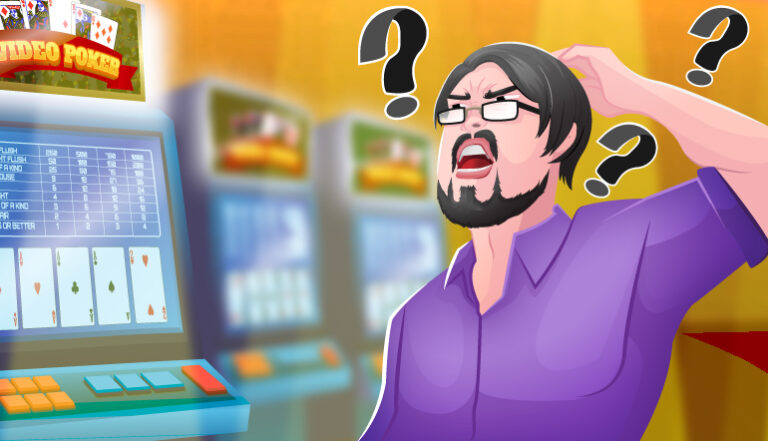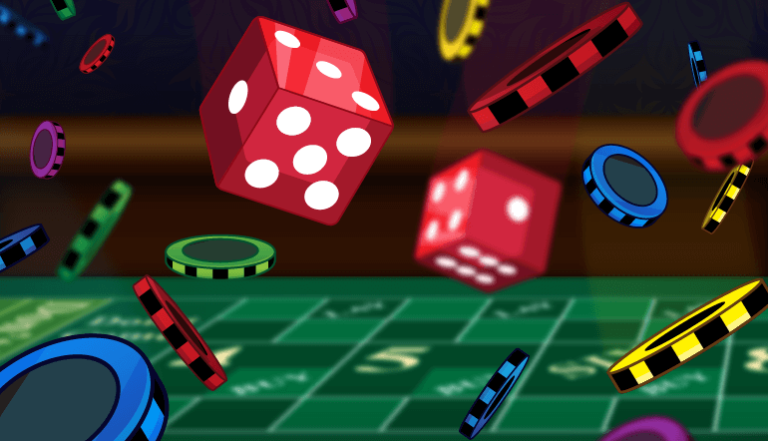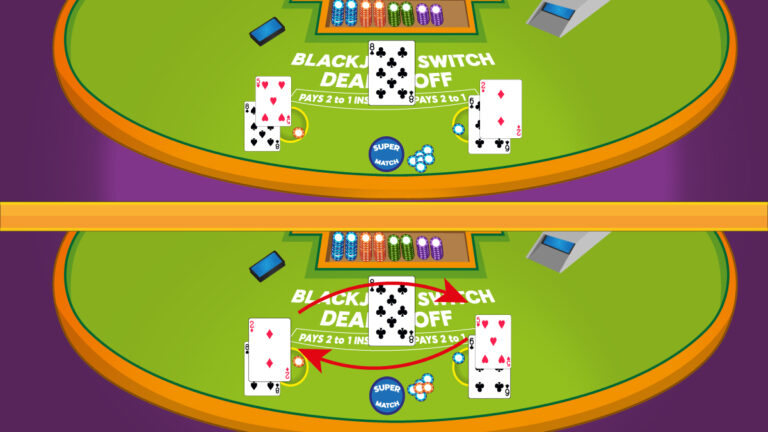Poker is a game where there is a big advantage in acting last and a big disadvantage to acting first. The seat position you are in at the poker table determines when you’ll act. In Texas Hold’em, position is king. Let’s take a look about what it means to be in position in poker.
For more poker terminology, check out our Poker glossary.
Poker Position Explained
There are two related meanings of the term position in poker.
The first meaning relates to when it’s your turn to act. Whoever is in position (IP) will act last. Whoever is out-of-position (OOP) will act first. The second meaning relates to where you are sat at the poker table.
Each table position has its own name, and is determined by where it is relative to the Dealer Button. The seats are grouped into Early, Middle and Late positions. The Dealer Button moves clockwise around the table after each hand, so each player gets to sit in each table position once per orbit.

The names of the poker positions and whether they are considered Early, Middle or Late position seats depends on: 1) whether you are playing 6-Max or Full Ring and 2) personal opinion. You will find a lot of different ways people divide up the positions, especially with Full Ring.
Don’t worry too much about it. What is most important is the seat’s position relative to the Dealer Button.
Table position is more of a spectrum than a black-and-white set of distinct categories – going anti-clockwise, the further you are away from the Dealer Button, the worse your position is. Being “on the button” is the best poker position of all.
The Dealer Button
The Dealer Button could be called the money button, because it is the most profitable spot at the poker table. Whoever has the Dealer Button will always be in position post-flop, and only has the Blinds to act after them pre-flop.
This means that if everyone around the table folds, the Dealer Button can raise knowing they will have position post-flop – even if the Blinds call. No other position at the table has this advantage.
The Blinds
Directly to the left of the Dealer Button is the Small Blind, and then on the left of the Small Blind is the Big Blind.
The Blinds are the worst positions in the game. They must make a forced bet before seeing their cards and they have to act first post-flop. Acting last pre-flop doesn’t make up for this.
Of the two positions, the Small Blind is the worst. You are only forced to pay half as much as the Big Blind, but you don’t act last pre-flop and always act first post-flop.
Early Position
The seat to the left of the Big Blind is known as “Under-the-Gun” or UTG.
This is because this player must act first pre-flop. Post-flop they will act before everyone except the Blinds. This combination of factors makes it a difficult position to play and so the basic Under-the-Gun poker strategy is to be cautious and keep it tight.
In Six-Max Hold’em, UTG is the only player considered early position. In Full-Ring (that is 9 players), there are usually understood to be at least two players: UTG and UTG+1 (the player directly to the left of UTG).
You will find some people that treat the first three seats to the left of the Big Blind as being early position though.
The Blinds can also be considered a part of Early Position as they act first post-flop – although they act last pre-flop.
Middle Position
Middle Position consists of the kind of neither here-nor-there seats at the poker table. As with Early Position, 6-Max has only one seat that’s considered middle position – usually referred to as Middle Position, but sometimes as the Hijack.
With Full-ring it is generally accepted to be the two seats in between UTG+1 and the Hijack (the seat two places to the right of the Dealer Button). These are generally known as the Lojack and Middle Position.
You can loosen up a bit in Middle Position compared to Early Position – but you still need to keep it fairly tight.
Late Position
Late Position seats are the best seats at the poker table. In Six-Max, that’s the Cut-Off and the Dealer Button. Full Ring, it’s those two plus the Hijack – the seat next to the Cut-Off going anti-clockwise.
Again, it’s important to look at table position as a spectrum. The Dealer Button is by far the best late position, with the Cut-off being slightly worse and the Hijack slightly worse still. Some people consider the Hijack to be a Middle Position seat.
Really what matters is how many players are left to act after you pre-flop – the more there are, the more likely someone will have a good hand. If anybody after you – other than the Blinds – get involved, then they will have position on you post-flop.
In-Position vs Out-of-Position
It might seem like poker is primarily a card game but really it’s a wagering game that uses cards to create situations where each player bids the amount they are willing to pay to continue in the hand.
Each round of betting (street) is its own separate negotiation. When you are negotiating, it’s always better to act last so you have more information to form an opinion on what to do next. And that’s where playing styles and position come in.
In position – acting last post-flop
If you are in position that means you will be acting last post-flop. You will get to see what the other players do before it’s your turn to act. You use their actions to decide how you should act.
That’s a massive advantage. The goal in poker is to make good decisions, and the more information you have, the better decisions you can make.
And on top of this informational advantage, acting last means you have control over the hand. You get to decide whether to go to the next street or reopen the betting. When you’re in position, it’s easier into get to showdown to realize your hand’s equity, it’s easier to chase draws, and it’s easier to build the pot when you have a good hand.
Out of position – acting last post-flop
Conversely, being out-of-position means that you will have to act first. You will have to make your decision on what to do without the benefit of knowing what your opponents will do. This is almost always a massive disadvantage. It’s harder to get to showdown when you’re out of position, and it’s harder to build the pot as well.
The best thing about poker is that you get to choose which hands you play. You can choose to play hands when you have position and fold hands when you don’t. Understanding the power of position is absolutely key for a poker player’s win-rate.
As an example, Annette Obrestad won an online 180-player tournament without looking at her hole cards. She did it to “show just how important it is to play position and to pay attention to the players at the table.” She shared her hand history for the tournament, and it showed her folding premium hands out-of-position and playing complete trash in position.

Strategies When In-Position
Think of playing in position poker like having the home field advantage. It doesn’t mean you’ll always win, but it’s a massive benefit that you need to take advantage of.
Play more hands when in-position
The most important thing is to try to play more hands when you are in Late Position, and especially from the Button. You might hear people say you should play around 20% of hands you are dealt and fold the rest, and this is true but misleading.
That might be the average overall, but you should be playing many hands from the Button and Late Position and very few from Early and Middle Positions. You want to take advantage of the power of playing in position poker as much as possible.
Raise preflop when you’re the button
If you open-raise from UTG then there are 8 players left to act on a Full-Ring table – so the chance of one them having a top 10% hand is around 60%. When you open up from the Button there are two players yet to act – the chance of either of them having a top 10% hand is about 20%.
When you raise from UTG, you will have to act first post-flop unless you are up against the Blinds. When you get involved on the Button, you will always act last post-flop no matter what.
Use continuation bets and checks more often
When you are in position post-flop, make the most of it. You can C-bet more often. You can check behind if you want to take a free card – or to pot control. Pot control basically means checking behind to skip one street of betting. This massively reduces the cost to get to showdown and realize your equity.
This reduction is so significant because of the way the pot grows exponentially on each street of betting. If you have to pay three streets at 50% pot you will end up paying twice as much as if you pay 2 streets at 50% pot.
Chase draws
Chasing draws is a lot more profitable when you play in position. You can accurately calculate the pot odds as you are last to act. And if you do make your hand you can easily build the pot – especially if they bet into you on the river.
If you are not the preflop aggressor then you can gain valuable information from what your opponent does. If they check the flop and the turn then it’s usually worth taking a stab because people don’t tend to check twice with anything good. You can place small probe bets, too, and fly relatively safely under the radar.
What To Do When Out-of-Position
Let’s not beat about the bush: out-of-position poker really sucks. You want to avoid it whenever possible. That said, there are some basic out-of-position poker strategies you can incorporate into your game.
The three most common out-of-position poker scenarios are:
- You raise from anywhere other than the Button and anybody other than the Blinds calls – e.g. you open from UTG and the Hijack calls, or you open from the Cut-off and the Button calls.
- You raise from anywhere other than the Button and anybody who is not in the Blinds three-bets you and you call.
- You are in the Blinds (unless you are Big Blind v Small Blind)
Getting Called
You can’t do a lot about this other than try to have cards good enough to negate your positional disadvantage.
The first rule for OOP play is to play tight. This is why you should open a tighter range from middle position than late position, and a much tighter range from early position than either. The earlier your pre-flop position the bigger the chance a non-Blind position will call, putting you out-of-position post-flop.
Getting 3-bet
Here you do have a choice, because you can always fold. Yes, you’ll lose your initial raise but this is a tiny amount compared to what you could lose playing a 3-bet pot out-of-position.
If you are 3-bet by anyone other than the Blinds, it is usually better to adopt a 4-bet or fold strategy rather than call 3-bets OOP – with the emphasis on folding.
If you just cannot bring yourself to fold your hand, then 4-betting is better than calling because your opponent may fold – meaning you won’t have to play the hand OOP and you won’t pay rake.
And secondly, 4-betting reduces the Stack-to-Pot ratio (SPR). The lower the SPR, the less power position has – this is easy to see by looking at the extreme case where you both get it all-in preflop and there is no positional advantage any more.
The Blinds
When it comes to Blind play, the golden rule is not to talk yourself into playing hands just because of the discount you’re getting. The positional disadvantage negates the benefit of the saving. Even if you do hit a monster hand you will find it a lot harder to get paid off. It is a lot easier to slow play a monster hand when in position than when you’re first to speak.
It makes sense to have a three-bet or fold strategy in the Blinds. The exception is in the Big Blind against late position blind steal attempts – where you are incentivized to defend by calling with a wide range to prevent yourself being exploited.
That said, at the lowest stakes you don’t need to worry too much about defending your blinds. A much bigger leak for most beginners will be playing too many hands from these unprofitable positions.
Just think twice before playing a hand from either Blind – the exception being when you are in the Big Blind against the Small Blind (as you will have position).
Post-Flop
If you do end up post-flop out-of-position then you should continue playing tight. Bluff less often. Even if you are the pre-flop raiser, you should Continuation-bet more selectively than when you are in position.
Watch out for wet, coordinated flops that hit the sort of hands your opponent would have called your pre-flop raise with. If you continuation-bet here and get raised then it will cost a lot more to see the turn than just checking and calling your opponent’s bet.
If you are not the pre-flop raiser then it is almost never correct to “donk” bet – that is lead out from OOP into the pre-flop raiser. The main exception is when you are really terrified of giving away a free card (either because it might help your opponent or kill the action), but even that is rarely a good idea unless you have constructed a balanced donk-betting range. By donk betting you are missing out on valuable information and the option to check-raise. If you never donk bet you will be just fine.
Playing out-of-position creates a lot of difficult spots and when it gets dicey it is often better just to fold and wait for a better opportunity – at least in cash games. In tournaments you don’t have this luxury, but also the much smaller SPRs tend to reduce the impact of position after a few blind increases.
Being in position means to act after your opponent. In poker, position is power. Take advantage of this by playing more hands in position and less hands out-of-position.
This article was published on April 2, 2021, and last updated on July 29, 2022.




